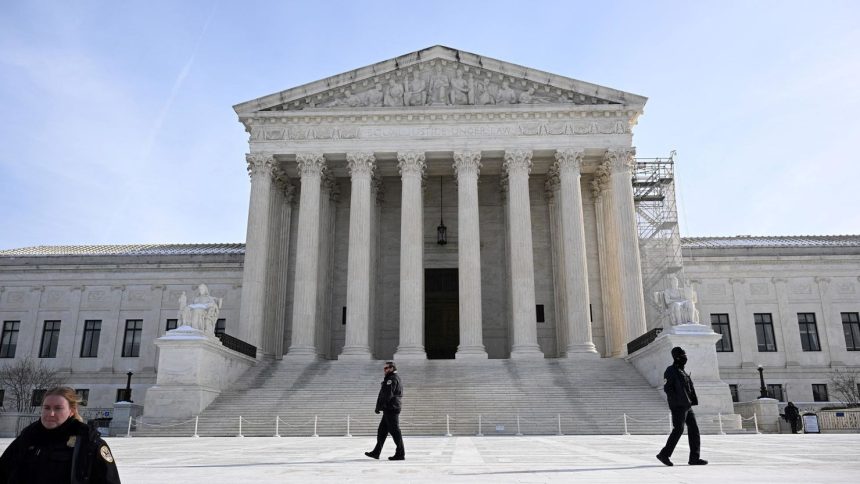CNN
—
A group of Holocaust victims may not sue Hungary in American courts to recover property stolen during World War II because their funds were comingled with other funds, the Supreme Court ruled Friday in a long-running case about how much reach US courts should have to settle disputes abroad.
Justice Sonia Sotomayor wrote the opinion for a unanimous court.
Sotomayor, quoting from a brief filed by the government, noted that “the moral imperative has been and continues to be to provide some measure of justice to the victims of the Holocaust, and to do so in their remaining lifetimes.”
But, she added, respecting the limits on people suing foreign governments in US courts “aids in the United States’ efforts to persuade foreign nations to establish appropriate redress and compensation mechanisms for human-rights violations.”
The court stressed that the victims might be able to bring their claims some other way, just not based strictly on the theory they relied on in this case.
More than a dozen Holocaust victims and their families have been fighting the Republic of Hungary and its national railway for nearly 15 years over whether they may continue their lawsuit in federal court. Such lawsuits aimed at foreign governments are generally prohibited, but the victims wanted the Supreme Court to apply an exception to the rule in their case.
That exception allows such lawsuits to proceed when expropriated property is present in the United States. In this case, the survivors claimed that the artwork, jewelry and other possessions stripped from Hungarian Jews during the Holocaust was sold and that the proceeds wound up within the United States through the course of its trade with Hungary.
“It is true that, because money is fungible, it will likely be difficult to trace cash from the sale of expropriated property after it is commingled,” Sotomayor wrote. But, she said, the law requires tracing specific property. “When a foreign sovereign is responsible for the expropriation, a suit may proceed only if the property is ‘present in the United States.’”
Throughout the oral arguments in December, several justices said they were concerned about the potential international fallout from allowing the case to proceed – specifically, that foreign nationals in other countries could bring lawsuits against the United States in foreign courts. That was precisely the concern raised by the Biden administration, which sided with Hungary in the dispute. The Justice Department warned that a ruling for the survivors would “invite reciprocal actions against the United States in foreign courts.”
The 1939 Society, an organization of Holocaust survivors, described that argument as a “surprising abdication of America’s historic leadership role in obtaining redress for Holocaust victims.”
American courts, the group said, are the “the only viable venue” to bring such claims.
That argument found some purchase on the Supreme Court in December, particularly from Justice Samuel Alito, who suggested that any reciprocal claims against the United States in foreign courts would be limited. Others feared that blocking the lawsuit would provide a roadmap to a foreign government attempting to expropriate property and avoid accountability in US courts: Quickly sell the property and comingle the proceeds with other government funding.
The victims filed their lawsuit in 2010, and the case has been bouncing around federal courts for so long that it previously reached the Supreme Court four years ago. In that instance, the justices ultimately sent the matter back to lower courts for additional review – tossing out a federal appeals court ruling for the families in the process.
A federal appeals court in Washington, DC, sided with the victims last year, and Hungary appealed to the Supreme Court.
CNN’s Devan Cole contributed to this report.
This story has been updated with additional details.


